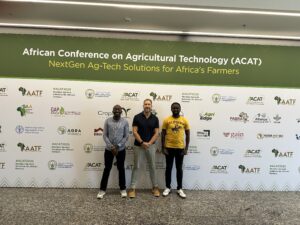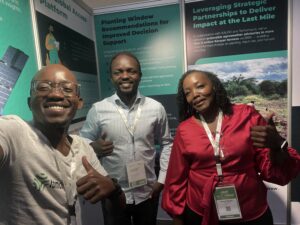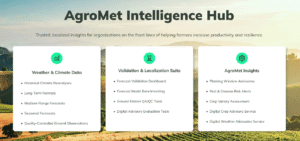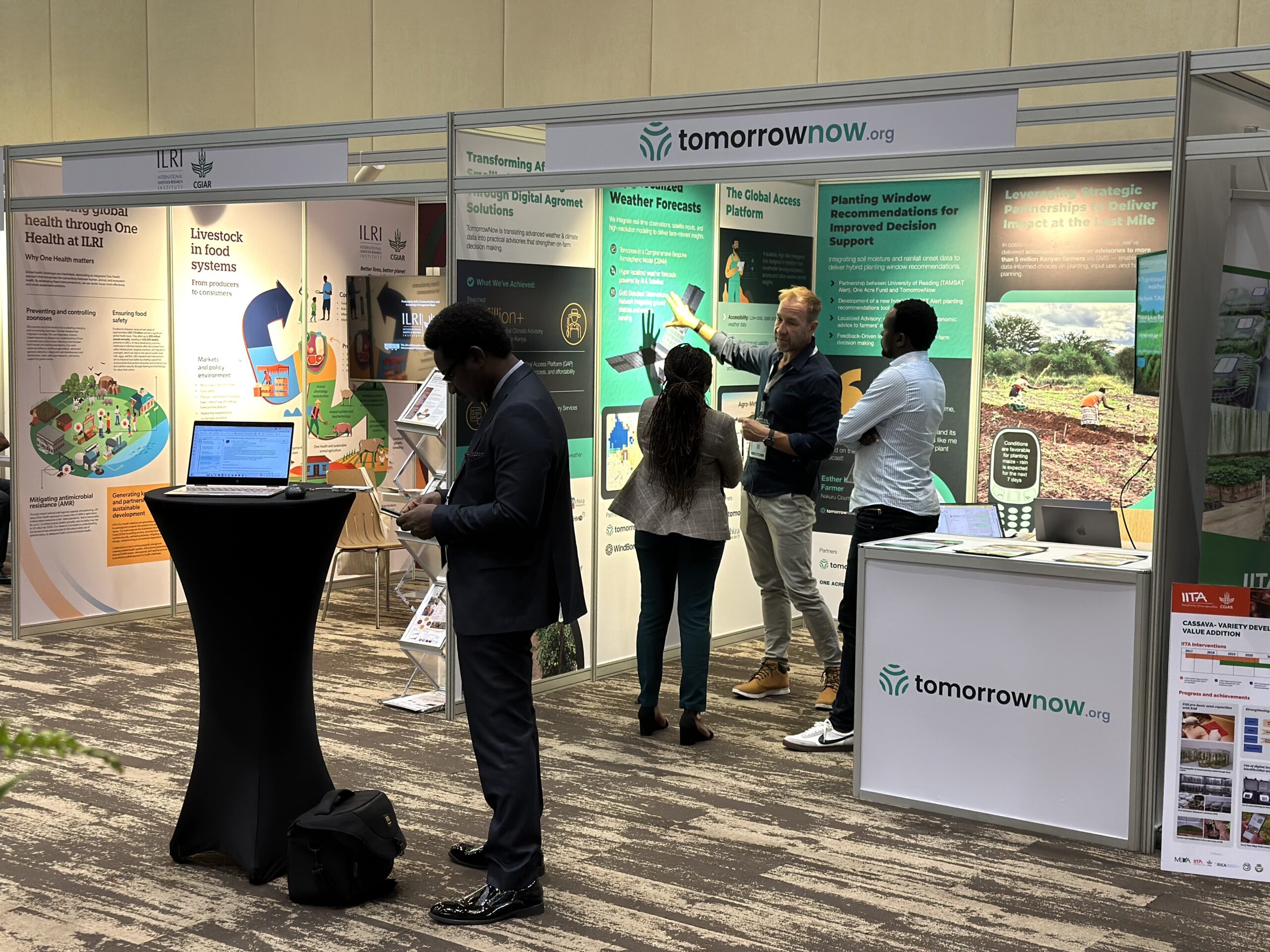Kigali, Rwanda – TomorrowNow was proud to be among the exhibitors at the 2025 African Conference on Agricultural Technology #ACAT2025 – showcasing how we are transforming Africa’s small-scale farming through next-generation agromet solutions.


Our mission is to empower 100 million smallholder farmers with accurate, actionable, and accessible weather and climate insights that drive resilience and productivity.
Here were our key reflections from ACAT 2025, which was hosted by AATF in partnership with the Government of Rwanda:
-
Scaling begins with the farmer!
We must keep prioritizing farmer voices from day one. Their insights — about timing, trust, access, and language — should shape the tools we build and how we deliver them.
For our solutions to drive real behavior change, they must fit seamlessly into how farmers already make decisions.
-
Scale is a Team Sport
No one actor can scale alone. For digital agromet solutions to reach millions, the private sector must actively co-create with governments, research institutions, and farmer-facing organizations.
Each stakeholder brings unique expertise — and alignment is what enables long-term success.
We’ve seen firsthand how embedding climate services into national agricultural systems increases uptake, trust, and sustainability.
That’s why we partner with National Meteorological and Agricultural Research Institutions to ensure our programs fit within existing delivery systems, not outside of them.
-
Scaling Is More Than Numbers
In partnership with Tomorrow.io and KALRO, we’re now reaching over 5 million smallholder farmers across Kenya with actionable agroweather advisories. But what does that scale really mean?
True impact goes beyond numbers. What works in Kenya may not work in the other regions that we are currently engaging.
The maize value chain is different from that of legumes or livestock. Institutional maturity, policy frameworks, and digital infrastructure all vary — and scaling solutions across borders can only drive impact when tailored appropriately.
That’s why we’ve built the Global Access Platform (GAP) to be flexible and modular — designed to adapt to diverse national contexts, value chains, and delivery systems.

To scale responsibly, we must not only expand reach but also deepen relevance. And we need more African-led case studies to understand what’s truly working, for whom, and why.
Final Thoughts
At TomorrowNow, we understand that what works in Kenya must be adapted — not copied — elsewhere.
That’s why we’re now actively working to expand Digital Climate Advisory Services (DCAS) into other countries across Africa, with a strong focus on local partnerships, national alignment, and farmer-centered design.
We thank everyone who took the time to visit the TomorrowNow booth and connect with us!

